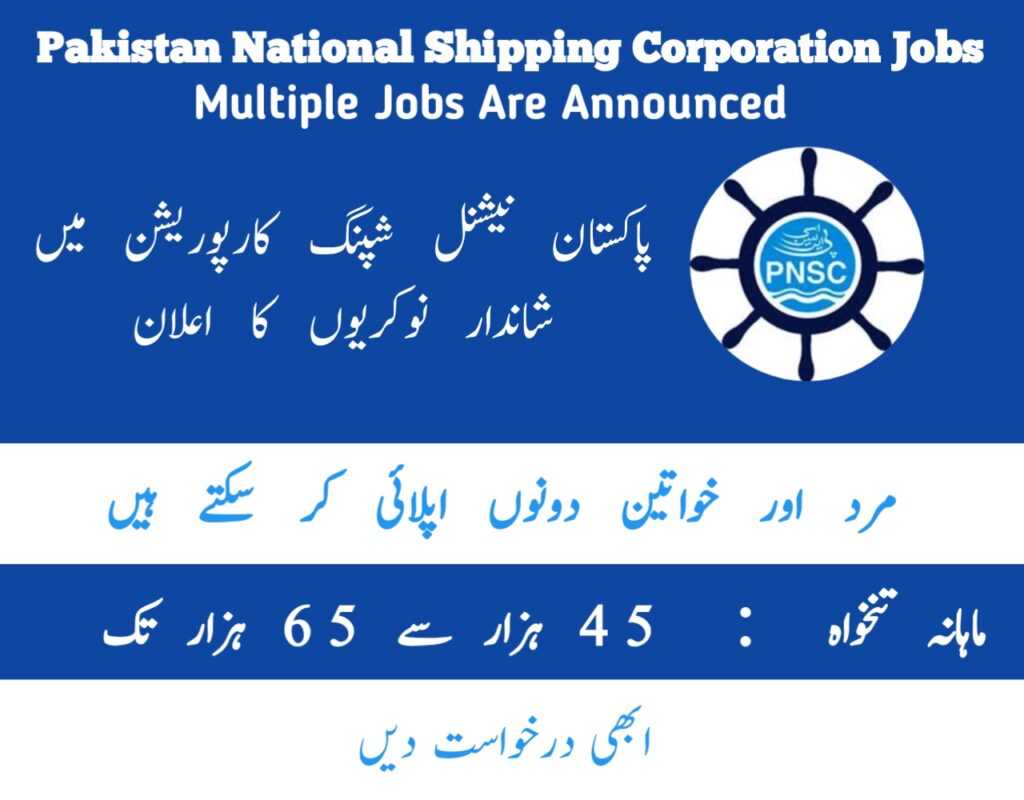Introduction:
The Pakistan National Shipping Corporation (PNSC) stands as a vital entity in Pakistan’s maritime landscape, playing a pivotal role in the country’s trade, shipping, and maritime infrastructure development. Established in 1979, the PNSC has evolved into a key player in both domestic and international maritime operations. This article aims to explore the history, functions, challenges, and future prospects of the Pakistan National Shipping Corporation within the context of Pakistan’s maritime industry.
Historical Background:
The establishment of the Pakistan National Shipping Corporation (PNSC) was a strategic move by the Pakistani government to enhance the country’s maritime capabilities and strengthen its position in global trade. Formed in 1979 under the provisions of the Pakistan National Shipping Corporation Ordinance, the PNSC was tasked with promoting and facilitating maritime trade, managing Pakistan’s merchant fleet, and contributing to the development of the national economy.
Functions and Responsibilities:
The PNSC’s primary functions revolve around facilitating Pakistan’s maritime trade and ensuring the efficient operation of its merchant fleet. As the national flag carrier, the corporation is responsible for transporting goods to and from Pakistani ports, both domestically and internationally. This involves managing a diverse fleet of vessels, including bulk carriers, container ships, tankers, and cargo vessels, to meet the country’s import and export requirements.
Moreover, the PNSC plays a crucial role in promoting Pakistan’s maritime interests on the global stage. Through partnerships and collaborations with international shipping companies and maritime organizations, the corporation seeks to expand its presence in key shipping routes and markets, thereby enhancing Pakistan’s connectivity and competitiveness in the global trade arena.
Contribution to Trade and Economy:
The PNSC’s operations have a significant impact on Pakistan’s trade and economy. By providing reliable and efficient shipping services, the corporation facilitates the movement of goods to and from Pakistani ports, supporting various industries and sectors of the economy. Furthermore, as a state-owned enterprise, the PNSC contributes to government revenue through its commercial activities and dividend payments, thereby bolstering the country’s fiscal stability.
In addition to its direct economic contributions, the PNSC plays a vital role in promoting maritime-related industries and infrastructure development in Pakistan. Through investments in port facilities, shipbuilding, and maritime training institutes, the corporation helps to create employment opportunities, enhance skills development, and stimulate economic growth in coastal areas and port cities across the country.
Challenges and Constraints:
Despite its significance, the Pakistan National Shipping Corporation faces several challenges and constraints that impact its operations and growth prospects. One of the primary challenges is the competitive nature of the global shipping industry, characterized by fluctuating freight rates, overcapacity, and technological advancements. To remain competitive, the PNSC must continuously upgrade its fleet, improve operational efficiency, and adapt to changing market dynamics.
Moreover, the corporation grapples with infrastructure constraints and regulatory hurdles that affect its ability to expand and diversify its operations. Inadequate port facilities, bureaucratic red tape, and regulatory inconsistencies pose barriers to efficient shipping and logistics operations, hindering the PNSC’s ability to fully capitalize on emerging opportunities in the maritime sector.
Furthermore, geopolitical tensions and security concerns in the region, particularly in the Arabian Sea and the Gulf of Oman, pose risks to maritime trade and navigation, impacting the PNSC’s operations and route planning. Ensuring the safety and security of its vessels and crew in these volatile waters remains a priority for the corporation.
Future Prospects and Strategic Initiatives:
Despite the challenges, the Pakistan National Shipping Corporation remains optimistic about its future prospects and is actively pursuing strategic initiatives to enhance its competitiveness and sustainability. One such initiative is the modernization and expansion of its fleet through the acquisition of new vessels equipped with advanced technology and eco-friendly features, such as fuel-efficient engines and emissions-reducing systems.
Additionally, the corporation is exploring opportunities for diversification and value-added services, including ship chartering, logistics management, and maritime consultancy. By leveraging its expertise and experience in the shipping industry, the PNSC aims to broaden its revenue streams and create synergies with related sectors, such as port management, freight forwarding, and trade facilitation.
Furthermore, the PNSC is committed to investing in human capital development and skills training to ensure a competent and skilled workforce capable of meeting the demands of the modern maritime industry. Through partnerships with educational institutions and vocational training centers, the corporation seeks to nurture talent and expertise in maritime disciplines, thereby enhancing its operational efficiency and competitiveness.
Conclusion:
In conclusion, the Pakistan National Shipping Corporation plays a crucial role in Pakistan’s maritime industry, facilitating trade, supporting economic growth, and promoting the country’s interests in global shipping networks. Despite facing challenges and constraints, the corporation remains committed to its mission of providing reliable and efficient shipping services while pursuing strategic initiatives to enhance its competitiveness and sustainability. As Pakistan continues to prioritize the development of its maritime sector, the PNSC is poised to play an increasingly important role in shaping the country’s maritime future.
